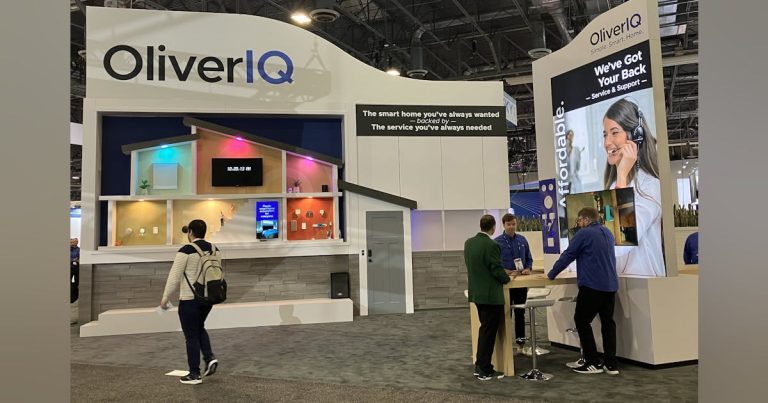More devices mean greater demand for integration
The DIY smart home sector is both the largest and the most problematic. Consumers are overwhelmed by the sheer number of connected devices in their homes, each requiring their own application to manage them. Managing DIY connected devices is cumbersome for consumers and significantly complicates the job of home integrators.
This integration concept is not new. In fact, home integrators know that most of the major home alarm system companies have been trying to make this kind of one-stop integration happen. The problem, Mella says, is they haven't gone deep enough into the smart home.
“A lot of (security players) start with monitored security, then add cameras, door locks, dimmers, thermostats, etc., but it still doesn't give you whole-home automation like Crestron or Control4 would say. It's pretty cool, but in the last 10 years a lot of manufacturers have been making IoT devices. They call it smart home, but it's really DIY. Today, if you have Samsung SmartThings, Apple HomeKit or Google Home, if you have an issue with a third-party product and you go to their website, they tell you to go to the manufacturer. So it's like, 'Feel free to do it, good luck.'”
Merah notes that the average consumer has a hard time programming skills into their Alexa devices to control things like lights, thermostats, doorbells, etc. “It may not be surprising that four in five people who install Nest thermostats and Ring doorbells pay a professional to do the installation,” he says.
“Eric was just at our booth at CES and he asked the audience, 'How many of you have an HVAC system, a plumbing system, an electrical system in your home?' Everybody raised their hand. Then he asked, 'How many of you do all of that maintenance yourself?' Nobody raised their hand. So why do consumers think they can control all of their electronic devices, all of their smart internet-enabled electronic devices?”
OliverIQ targets people around the world who want a variety of benefits, including safety and security, comfort and convenience, energy savings, effortless entertainment and the ability to age in place. “Consumers care about benefits. It doesn't matter if it's Matter, Thread, Zigbee or Z-Wave. They just want it to work,” says Mella.
Redefining the role of the housing integrator
The days of residential integrators simply putting their alarm panels away in the closet and moving on to the next job are coming to an end. “One of the things we've learned in the commercial integrator channel is that these integrators have an incredibly big influence on homeowners' lives. If a customer wants to upgrade their home with an LED gas fireplace, they're going to call a Control4 dealer and ask for advice on what product to buy. Integrators have that kind of influence, and we're seeing where this is going – we call them the 'IT department of the home.'”
Merah said integrators in that position, who his team calls primary service providers (PSPs), will be able to have a huge impact as long as they have a platform that can help the average smart home owner. Service has always been a key missing piece to a successful smart home experience, especially when it comes to DIY and IoT products.
“In a connected home, you don't always know why something is offline. Maybe your smart door lock just needs a battery change, maybe there's a network issue, or maybe something is just old and not good enough anymore. Who do you call? You call the PSP, the people who are strangling you.”
Merah says the platform makes sense for a typical alarm distributor looking to expand into the smart home: “Our selling point is that we have an end-to-end platform, which not only provides a great consumer experience that's easy to learn, easy to use and easy to navigate, but also makes it attractive to integrators.”
Logically, OliverIQ plans to wholesale the app and software to its PSP partners. Depending on the integrator's business model, options range from unlimited connected devices, unlimited support, and remote monitoring security (provided by an already-partnered wholesale central station) for $30 per month. The app can be in OliverIQ's name, or in the name of the home integrator's company or home builder.
What kind of integrators will this appeal to? “We're interested in integrators that care about scale,” Mela explains. “If an integrator comes to us and says we've just signed a contract with the largest housebuilder in the South West and we're going to do 1,200 homes, that's right in the sweet spot for us. We're already talking to some of the top 40 security providers, but we'd be very interested in all security integrators at least considering us. We want to meet with as many integrators as possible.”
Paul Rothman is Editor-in-Chief of Security Business magazine. Please email your comments or questions to (email protected). To access the latest issue, complete archives, and to sign up for a free subscription, visit www.securitybusinessmag.com.

